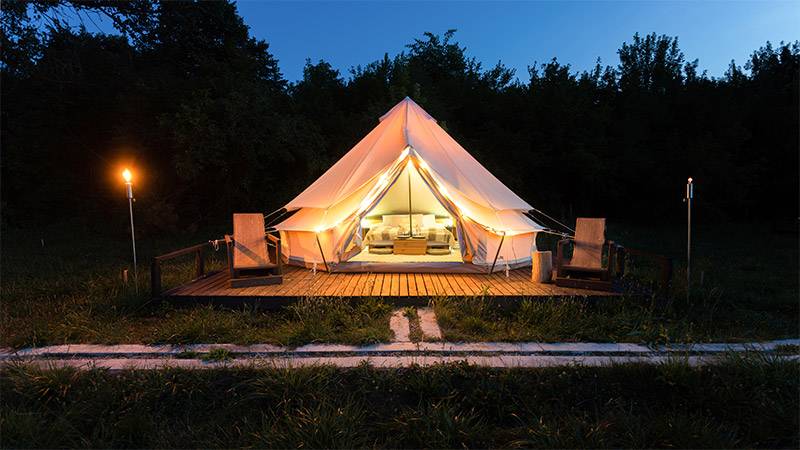In a shift towards eco-consciousness, travelers worldwide are reevaluating their impact on the planet, leading to a rise in sustainable tourism. This transformation was partly inspired by Silvia Ombellini and Simone Riccardi, who, a decade ago, conceptualized Ecobnb, a platform for finding eco-friendly accommodations. Their venture, emerging from a struggle to find sustainable lodging in Potenza, Italy, now showcases over 3,000 global properties, from Tuscan organic farmhouses to Costa Rican eco-lodges.
Ecobnb sets rigorous standards for listings, requiring adherence to at least five of ten eco-criteria, including renewable energy use, organic or local food, rainwater harvesting, eco-friendly architecture, and car-free accessibility. The platform, which connects travelers to properties without handling payments, has grown significantly, with 2.8 million users in 2023, up from 780,000 in 2018. This surge aligns with a broader trend: a recent study revealed that 69% of travelers now actively seek sustainable travel options.
The rise of sustainable tourism reflects a growing awareness and responsibility towards the planet, particularly among younger generations. Conscious Hotels in the Netherlands epitomizes this shift. Their seven-hotel chain embraces comprehensive environmental practices, such as renewable energy, sustainably sourced furnishings, and a vegetarian menu with 90% local ingredients. CEO Marco Lemmers emphasizes a holistic approach to sustainability, considering climate change, biodiversity, land use, and toxins.
Byway Travel, a flight-free travel company founded in 2020, also illustrates this trend. With a focus on reducing over-tourism and supporting local economies, Byway Travel offers alternatives to popular destinations like Venice, favoring lesser-known locales like Trieste. Their booking numbers have skyrocketed, demonstrating a growing preference for sustainable travel experiences.
“Holidaymakers are rethinking their relationship with planet Earth. There is a new awareness, especially in young people, about our responsibility for our future and for the planet.”
Statistics appear to back this up. A study this year found that 69% of travellers were now “actively seeking sustainable travel options”.
Marina Novelli, a professor of tourism and international development, points out that sustainability in travel should extend beyond environmental measures to encompass fair employment practices and equality policies. She also warns of greenwashing, where establishments overstate their eco-credentials. Novelli advocates for consumer vigilance, urging travelers to thoroughly research and question accommodations’ sustainability claims.
According to the BBC, while Ecobnb promotes eco-friendly stays, questions arise about the sustainability of travel to these destinations, especially for those flying in. Ombellini acknowledges the significant impact of flights and advocates for staycations and exploring local destinations to mitigate this. She remains optimistic about the future of green travel, believing that small, individual choices can collectively drive significant change.
This evolving landscape of travel reflects a broader movement towards technological innovation shaping economic dynamics, where sustainability is not just an option but a necessity. As more travelers embrace green choices, the tourism industry is poised for a transformative shift, promoting a more sustainable and equitable future.
More inspiring green news similar to this:


